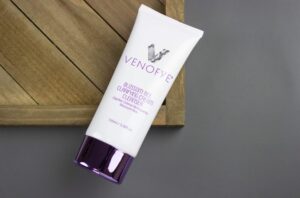Beautiful skin is not just about good genes; it’s also the result of a consistent and effective skincare routine. Many people desire clear, radiant skin, but achieving it requires more than just using the right products. Healthy skin comes from a combination of the right skincare habits, good nutrition, hydration, and protection from environmental factors. Whether you’re dealing with acne, dryness, or signs of aging, a tailored skincare routine can make all the difference. This guide provides expert tips that can help you achieve beautiful skin by incorporating simple yet powerful practices into your daily routine.
Know Your Skin Type
The first step toward beautiful skin is understanding your skin type. Different skin types require different types of care, so knowing whether your skin is oily, dry, combination, sensitive, or normal will help you choose the right products and avoid irritation. Oily skin tends to produce excess sebum, leading to a shiny appearance and clogged pores. Look for products that help balance oil production without over-drying the skin. Dry skin can appear flaky, tight, and dull. Choose rich, hydrating products that provide moisture and help lock it in. Combination skin has areas of dryness and oil, often with an oily T-zone (forehead, nose, and chin). A balanced skincare routine that addresses both dry and oily zones is essential. Sensitive skin may react to certain ingredients or environmental factors, resulting in redness or irritation. Use gentle, fragrance-free products formulated for sensitive skin. Normal skin is well-balanced, not too oily or dry. However, it still benefits from basic skincare to maintain its health and appearance.
Follow a Basic Skincare Routine
The foundation of any beautiful skin routine is a basic regimen that includes cleansing, moisturizing, and sun protection. These are essential steps to keep your skin healthy and glowing. Cleansing your face every morning and night is crucial to remove dirt, oil, makeup, and pollutants. Choose a gentle cleanser that suits your skin type to avoid stripping your skin’s natural oils. Moisturizing is important even for oily skin. Opt for a lightweight, oil-free moisturizer if your skin is oily, or a richer cream if you have dry skin. Moisturizing helps maintain your skin’s hydration, which is essential for a youthful, plump appearance. Sun protection is vital because sun exposure accelerates skin aging and increases the risk of skin cancer. Always wear a broad-spectrum sunscreen with at least SPF 30, even on cloudy days. Reapply every two hours if you’re outside for an extended period.
Incorporate Targeted Treatments for Your Skin Concerns
Once you have a solid skincare routine in place, consider adding targeted treatments to address specific skin concerns. Exfoliating 1-2 times a week helps remove dead skin cells, unclog pores, and reveal brighter, smoother skin. Chemical exfoliants like AHAs (alpha-hydroxy acids) and BHAs (beta-hydroxy acids) are excellent for gently exfoliating the skin without causing irritation. Serums are highly concentrated treatments designed to target specific skin issues. If you have acne, a serum with salicylic acid can help. For signs of aging, look for serums containing vitamin C, retinol, or peptides to promote collagen production and reduce fine lines. Once a week, consider using a face mask to give your skin an extra boost. Choose a hydrating mask for dry skin, a purifying mask for oily skin, or a soothing mask for sensitive skin. Face masks can provide an intensive treatment that targets specific needs.
Hydrate Your Skin from the Inside Out
Beautiful skin starts with hydration, and this includes both external hydration and internal hydration. Drinking plenty of water throughout the day helps maintain your skin’s moisture levels and ensures that your body functions optimally. Aim for at least 8 glasses of water daily, and increase your intake if you’re active or in a hot climate. In addition to water, consuming foods that are rich in healthy fats, such as avocados, nuts, and seeds, can support your skin’s hydration. Omega-3 fatty acids, found in fish like salmon, also help maintain the skin’s moisture barrier, keeping it soft and supple.
Protect Your Skin from Environmental Damage
Environmental factors such as pollution, smoke, and harsh weather conditions can take a toll on your skin. Over time, these factors can lead to dullness, premature aging, and increased risk of skin conditions. Pollutants in the air can damage the skin’s barrier, leading to inflammation and the breakdown of collagen. Consider using antioxidants, such as vitamin C, to help neutralize free radicals and protect your skin from environmental stress. Cold, dry air can dehydrate the skin, leading to flakiness and irritation. Use a rich moisturizer in winter to lock in moisture and protect your skin from harsh temperatures. You may also want to consider using a humidifier in your home to add moisture to the air. Heat and humidity can lead to excess sweating and clogged pores, which may cause acne breakouts. Opt for lightweight, oil-free products that won’t clog your pores and keep your skin feeling fresh.
Sleep and Stress Management for Radiant Skin
Adequate sleep and stress management are often overlooked but play a significant role in maintaining beautiful skin. Lack of sleep can lead to dark circles, dull skin, and an increase in breakouts. During sleep, your body repairs and regenerates skin cells, helping to keep your skin looking youthful and healthy. Try to get at least 7-9 hours of sleep each night to allow your skin to recover. To enhance the quality of your sleep, establish a relaxing nighttime routine, such as avoiding screens before bed, drinking herbal tea, or reading a book. Stress is another factor that can negatively affect your skin. It triggers the release of cortisol, which can increase oil production and lead to acne breakouts. Incorporate stress-reducing activities, such as yoga, meditation, or deep breathing exercises, into your daily routine to promote overall skin health.
Choose the Right Skin Care Products
Choosing the right skincare products is essential for achieving beautiful skin. The key is to use products that suit your skin type and address your specific concerns. Avoid products that contain harsh chemicals, fragrances, or alcohol, as these can irritate the skin and disrupt its natural balance. Opt for a gentle, sulfate-free cleanser that won’t strip your skin of its natural oils. A toner can help balance your skin’s pH levels and remove any remaining impurities after cleansing. Choose an alcohol-free toner that suits your skin type. Pick a moisturizer with ingredients like hyaluronic acid, glycerin, or ceramides, which help keep your skin hydrated and lock in moisture. As mentioned, sunscreen is non-negotiable. Look for a broad-spectrum sunscreen with SPF 30 or higher to protect your skin from harmful UV rays.
Exercise Regularly for a Healthy Glow
Exercise has numerous benefits for your skin, and regular physical activity can help achieve a glowing complexion. Exercise improves blood circulation, which helps deliver oxygen and nutrients to your skin. It also helps to reduce stress, which can have a positive impact on your skin. Aim for at least 30 minutes of exercise most days of the week. Activities like jogging, walking, yoga, or swimming can all contribute to better skin health and a healthy, radiant glow.
Conclusion: Consistency Is Key
Achieving beautiful skin requires a consistent skincare routine that addresses your individual needs. With the right products, a healthy lifestyle, and a focus on hydration, you can enhance your skin’s appearance and maintain a radiant complexion. The secret to beautiful skin lies in the combination of nourishing your skin, protecting it from environmental stressors, managing stress, and maintaining a healthy diet and exercise routine. By following these expert tips and staying consistent, you can enjoy the glowing, flawless skin you’ve always dreamed of.




